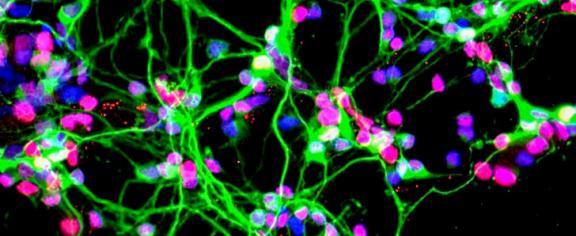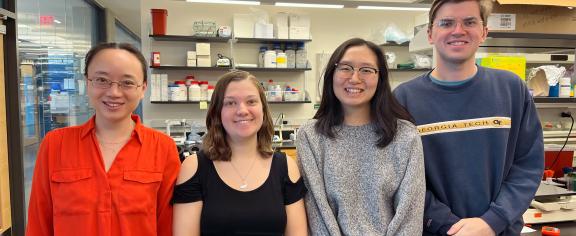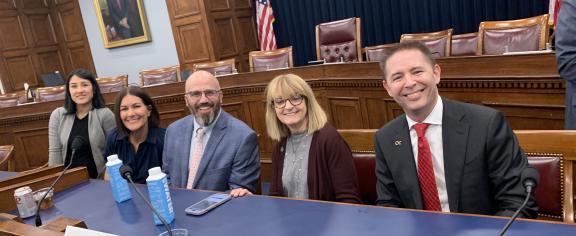2025-06-26
Researchers at Georgia Tech have developed an algorithm that helps AI models develop internal organization just like the human brain — boosting efficiency by 20 percent.
2023-03-29
As we celebrate Women's History Month and look to the future of our field, meet seven of Georgia Tech's real-life superheroines of life science — and science fiction.
2024-06-10
College of Sciences graduate Anisha Kanukolanu is among the Georgia Tech students and alumni who have received a Fulbright U.S. Student Program award to study/conduct research.
2024-05-21
Han will investigate whether blocking specific neurons can help inhibit asthma — which may provide a new avenue for developing treatments.
2024-05-02
The new interdisciplinary Ph.D. in Neuroscience and Neurotechnology is expected to enroll its first graduate students in Fall 2025. Sciences will also offer a new Minor in Neuroscience, beginning Fall 2024.
2024-04-24
Chris Rozell traveled to Washington, D.C. to share the impacts of the past decade of brain research funded by the NIH BRAIN Initiative with Congress — and share with local representatives how Georgia Tech is playing a key role in leading the charge.
2024-04-09
A team of Georgia Tech researchers is the first to study the relationship between fluctuations in attention and the brain network patterns within low-frequency 20-second cycles.
2024-03-19
A new study co-led by Anna (Anya) Ivanova highlights how human neuroscience is paving the way for AI innovation — and what AI can teach us about ourselves.
2024-03-07
Co-PI Simon Sponberg will lead the Georgia Tech contingent of researchers, which aims to understand dynamic, agile movement.
2024-02-09
Since the early days of the Institute, Georgia Tech students have explored aspects of the mind, brain, and behavior through psychology. To commemorate 100 years of psychology at Georgia Tech, we’re taking a deep dive into its storied history.







